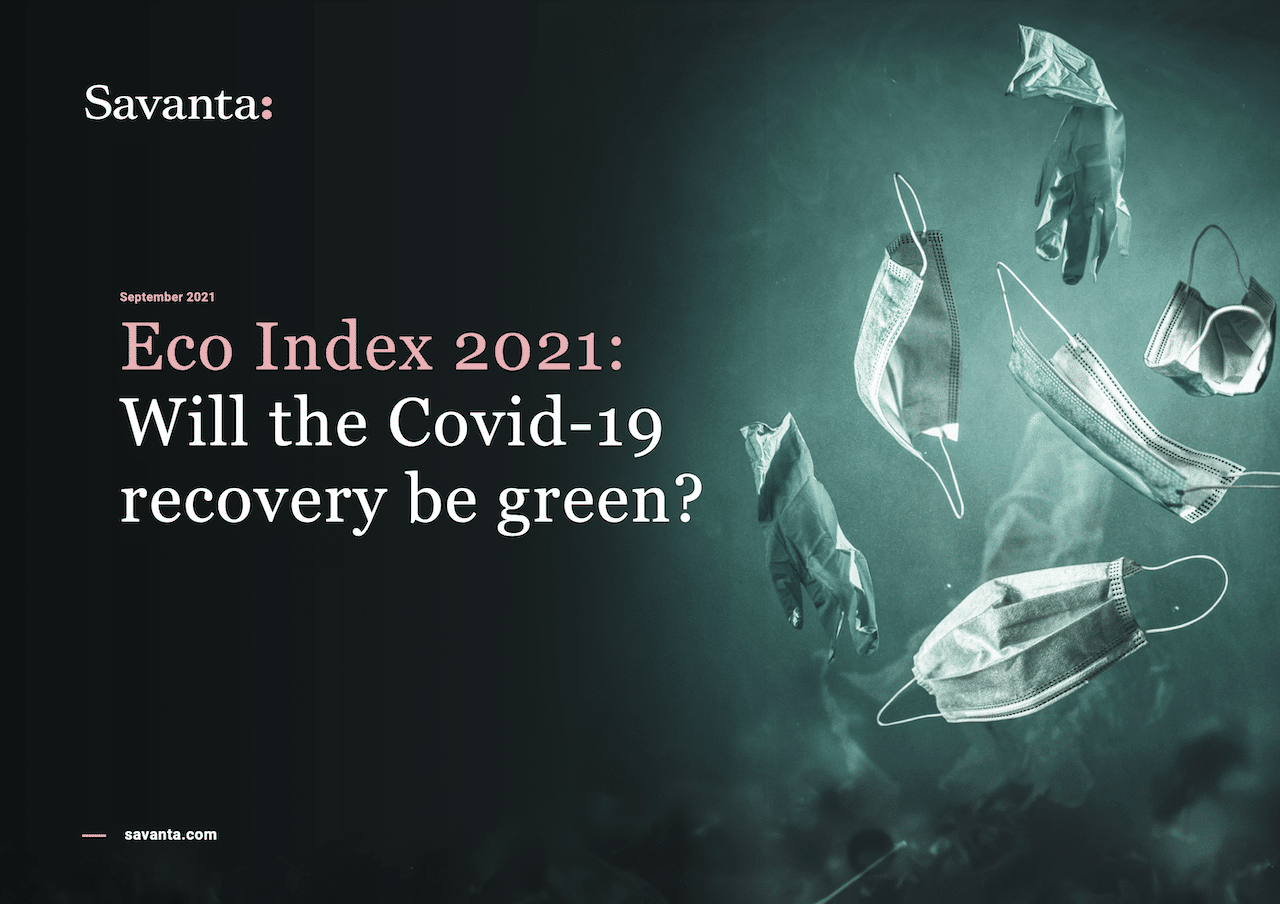“The coronavirus pandemic has affected all of our lives, but long-term the biggest impacts may be on the very world we live in.” This is the opening statement of the new Eco Index 2021 report by market research company Savanta, looking at COVID’s impact on the environment.
Eco Index 2021: Will the COVID-19 recovery be green? analyzes the views of 6,000 adults (2,000 in the UK, 2,000 in the US and 2,000 in Canada) on climate change and sustainability ahead of COP26, and details the action they want to see from Government as each nation emerges from the peak of the pandemic.
The report describes how green policies ‘fell off the agenda’ as governments ‘prioritized handling the economic fallout from COVID-19. Despite the well-documented anthropause (caused by global lockdowns leading to an opportunity for the environment to show ‘green shoots of recovery’) key findings reveal that 66% of millennials and Gen Z in the UK believe that overall the pandemic has ‘slowed or reversed action against climate change’.
Savanta reports that 64% agree the UK’s economic rebound ‘should prioritize a green recovery focusing on investment in clean energy and infrastructure’. 59% would support a government-imposed financial levy to prevent disposable masks from being cheaper to buy than reusable ones, to combat the ‘staggering’ 53 million of them which are send to landfill every day [TradeWaste, November 2020].
The coronavirus pandemic has affected all of our lives, but long-term the biggest impacts may be on the very world we live in
Just 42% of Brits believe the UK will achieve its net zero carbon emissions by 2050, while 83% think individual actions counts and ‘we should all do something because we can all make a difference’. Conversely, the study highlights that Gen Z are ‘significantly more likely than Baby Boomers to believe that for a lot of environmental problems, it’s already too late to make a difference and that one person can’t achieve anything’. “Men are significantly more likely to agree with both of these statements than women, but the consequence of such a mentality is that it could lead to passivity and a lack of action.”
91% of Gen Zers report experiencing guilt over their environmental footprint – a ‘relatively modern phenomenon’, says Savanta.
The Eco Index 2021 also looked at the top five items consumers would be willing to sacrifice ‘to halt and reverse climate change in the next 12 months’. Ranking highest was single-use plastic, followed by standard light bulbs, toxic cleaning products, taking long showers and cutting down trees.
When asked about six potential national-level Government actions to encourage sustainability, 56% agreed with harsher penalties for large industrial polluters which violate restrictions; 45% support the idea of increasing industry regulation of pollution-causing activities; and 41% would welcome offering tax incentives or subsidies to increase electronic vehicle uptake. At local level, creating more green space ranked highest in the UK (a particular focus for women), while waste-reduction policies and generating electricity through renewable sources were also cited as important in improving local neighbourhoods.
The report can be read in full here.






